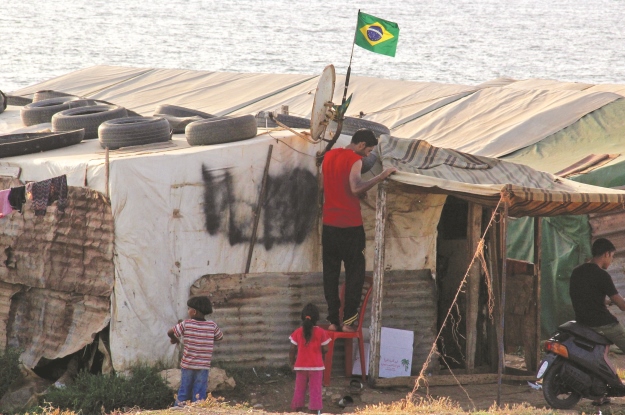To see our entire feature on Syrian refugees in Latin America, click here.
Many Latin American countries deserve the world’s gratitude for opening their doors to Syrian refugees. Their generosity and humanity stand out at a time when many other countries are turning people away. But what happens aft er the refugees arrive? How can governments help new arrivals get jobs, avoid discrimination, and prosper over time? AQ asked experts from across Latin America and interviewed several recently arrived refugees in an effort to gather recommendations and best practices — many of which don’t cost much money. Here are a few of the suggestions we heard.
1. Coordinate regional response. Latin America has already shown the ability to come together on this issue, agreeing in December 2014 on a regional plan to assist refugees. But since then, the response to the Syrian crisis has been fragmented, said Renata de Melo Rosa of University Center of Brasília. A new regionwide summit would be helpful in building consensus. A roundtable could highlight best practices, address political tensions, and recognize limitations individual countries face. For example, Colombia, which has taken in approximately 100 Syrians, lacks capacity to accept a large number of foreign refugees, given its approximately 6 million people displaced internally, said Stephane Jaquemet, representative of the U.N. High Commissioner for Refugees (UNHCR) in Colombia.
2. Combat misinformation. Many countries have embraced campaigns to inform their citizens why Syrians are seeking asylum. But misinformation and misunderstandings persist. “Some people still think refugees are running away because they owe some money, and we have to make them realize that they’re running for their lives,” said André Fabrin de Almeida Leitão, founder of a nonprofit assisting Syrians in São Paulo. Similarly, refugees should be informed about cost of living, job availability, and basic customs in their destination country.
3. Streamline bureaucracy. Brazil’s fast-track humanitarian visa allows Syrians to get a visa within days and “is recognized by UNHCR as an example to the region and the world,” said Luiz Fernando Godinho Santos, the agency’s spokesperson in Brazil. Other bureaucratic processes, such as work documentation, could be sped up, added Maria Cristina Morelli of the Reference Center for Refugees at Caritas Arquidiocesana de São Paulo. But beware of negative side effects from trying to shorten bureaucratic processes, warned Luisa Feline Freier of Pacific University in Peru. She cited how Ecuador in 2012 created unrealistically short application deadlines for asylum seekers, preventing many from gaining refugee status until the system was reformed again in 2014.
4. Supply basic infrastructure. In hubs like São Paulo and Buenos Aires, establishing large-capacity welcome centers could help integrate refugees into national systems and provide relief to overwhelmed local organizations. The São Paulo branch of Caritas, for example, received 6,629 refugees and asylum-seekers from 1993 to 2014; in just the first half of 2015, that figure skyrocketed to 5,644, stretching staff thin and creating a backlog of requests. “We could have an area where we could receive these people with more dignity,” said Leitão.
5. Provide tools to succeed. Access to basic needs, such as housing, language instruction, schooling, health screening, vocational training and career services, are crucial for integration, all experts agree. This can be challenging for cash-strapped governments, but budget-friendly approaches exist. In Brazil, the nonprofit Abraço Cultural trains refugees to be foreign language teachers. In Mexico, Proyecto Habesha is working to bring a group of Syrian students to finish
university in order to help reconstruct Syria postconflict. Jaquemet offered another low-cost idea: Establish a sponsorship program so families or cultural centers provide temporary shelter and other assistance, as Canada is doing.
—
Bons is an editor at AQ
Kurczy is a special correspondent to AQ and is based in Rio de Janeiro.




